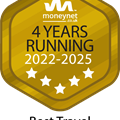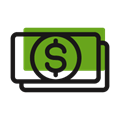Average Prices in Egypt
In the UK, the cost of living is 200% higher than it is in Egypt[2]. This means that you’ll likely find things much cheaper than at home. Cairo is likely to be the most expensive place, but you’ll also pay tourist prices in the bars and restaurants in and around the Red Sea resorts.
How much is a meal in Egypt?
When eating out in Egypt, you can expect to pay around 900 EGP for a three-course meal for two in a mid-range restaurant. This drops to around 200 EGP for an inexpensive restaurant. You’ll also be able to pick up street food snacks like falafel, Egyptian pizza and kebabs for much cheaper.
If you’re holidaying in the Red Sea, often your hotel will be all-inclusive, so you’ll only need to pay these prices when you venture out of the resort.
How much does a beer cost in Egypt?
On your holiday in Egypt, you can expect to spend 70 EGP for a local beer (usually Luxor beer). For an imported beer, you’ll spend 140 EGP for a 33ml bottle.
How much does a coffee cost in Egypt?
On average, a coffee will usually set you back around 70 EGP.
How much does a soft drink cost in Egypt?
You’ll spend around 16 EGP for a 33ml bottle of Coke or Pepsi, and 6 EGP for a 33ml bottle of water.
How much do tourist attractions cost in Egypt?
To go inside the Great Pyramid in Giza, you’ll pay around 900 EGP, whilst it’s 220 EGP for the 2nd or 3rd Pyramid.
In Cairo, at the Egyptian Museum of Antiquities, you’ll pay 450 EGP for entry. If you’re heading to Luxor and want to see Karnak Temple, it’s around 450 EGP for entrance. You’ll also have to pay around 600 EGP to go to the Valley of the Kings.
How much does travel cost in Egypt?
A one-way ticket on a local bus is just 11 EGP. If you’re taking a taxi, expect to spend around 20 EGP as a starting fare and 15 EGP for every kilometre after.
If you’re booking a tour to see the sights from your hotel, your transport will be included in the cost.
How to pay in Egypt?
You’ll find that you can use your credit or debit card to pay contactless in most of the major cities and tourist areas – even for small transactions.
You’ll likely need cash in more rural areas or if you’re shopping for souvenirs in the market or buying from a street food vendor.
You’ll also find ATMs in most of the main tourist areas and cities, but less so as things get more rural.







